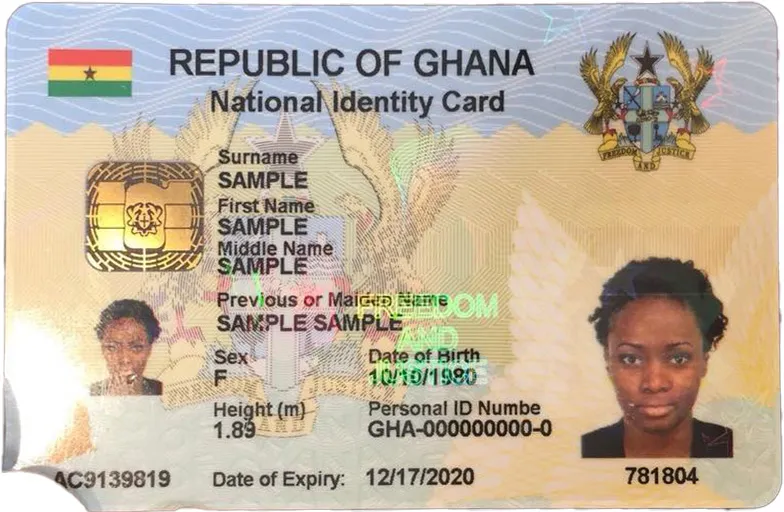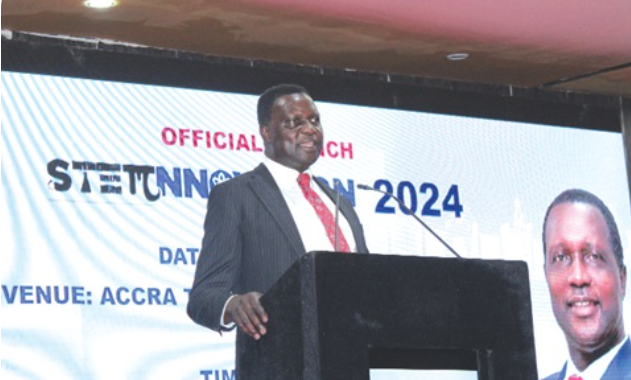Banks taking photocopies of your Ghana Card ID for bank transactions is against NIA regulations

According to the requirements of the National Identification Authority (NIA), banks are not permitted to take photocopies of national identification cards for the purpose of conducting transactions. Mr. Moses Baiden, Chief Executive Officer of Margins ID Group makes this statement.
He emphasised that it was against the law to photocopy customers’ identification cards. “With the NIA system, if you go to the bank, you have to present yourself to the bank and put forth your fingerprint for the bank to get an audit code connected to your transaction,” he said.
Data protection implementation in the delivery of identification systems in Africa was the topic of a panel discussion that took place on the margins of the Data Protection Africa Summit. Mr. Baiden made this statement during the discussion.
For the Africa Digital Rights Hub (ADRH), the Summit is a flagship initiative that takes place every year across the continent of Africa.
Generative artificial intelligence, data transfers across Africa, data protection and identification systems in Africa, as well as digital trade, data protection, and the African Continental Free Trade Agreements (AfCFTA) are some of the main issues that are taken into consideration.
In the process of developing and issuing the National Identification Cards (also known as Ghana Cards), the Margins Group has been a partner of the National Identification Authority (NIA).
The comments made by Mr. Baiden were a response to concerns over the governance, compliance, and enforcement of data privacy among organisations.
According to him, the obstacle that the nation faced in its drive for data protection and identification was not a problem with data gathering or technology, but rather with attitudes and enforcement issues.
He made the observation that “if we want a clean data collection society where laws are fully enforced, it is beyond data protection and technology, but rather attitudinal,” and pointed out that this is in fact the case.
In order for institutions to make judgements and practices that are well informed, Mr. Baiden asked every institution to be fully up to date on the NIA system.
Ms. Teki Akuetteh, the founder and executive director of ADRH, made the observation that the general public lacked information regarding the process of data gathering and preservation.
According to her, the majority of people were unaware of the purposes for which the data obtained from them was being used, and as a result, they were susceptible to the dangers of data manipulation.
She emphasised the importance of stakeholder institutions increasing their efforts to raise awareness and sensitise the public about the rights of citizens to data collection and protection in order to empower people to make choices and decisions based on accurate information.
During her speech, Ms. Akuetteh advocated for the establishment of a national database system that would be synchronised and centralised, allowing institutions to collect data for the purpose of identification.
According to her, this would assist the institutions in reducing the dangers and threats associated with unauthorised access, as well as saving money and time associated with the data collection operations.
At the Accra Summit, there were about two hundred participants from all around the world, including members from Africa and other regions.
“Building Bridges for Oversight and Accountability” was the overarching theme of the international conference that took place over the course of three days. It brought together policy makers, regulators, researchers, lawmakers, and key industry players in the digital space, particularly data protection practitioners and privacy experts.
Send Stories | Social Media | Disclaimer
Send Stories and Articles for publication to [email protected]
We Are Active On Social Media
WhatsApp Channel: JOIN HERE
2024 BECE and WASSCE Channel - JOIN HERE
Facebook: JOIN HERE
Telegram: JOIN HERE
Twitter: FOLLOW US HERE
Instagram: FOLLOW US HERE
Disclaimer:
The information contained in this post on Ghana Education News is for general information purposes only. While we endeavour to keep the information up to date and correct, we make no representations or warranties of any kind, express or implied, about the completeness, accuracy, reliability, suitability or availability with respect to the website or the information, products, services, or related graphics contained on the post for any purpose.




 Education Minister launches STEMNNOVATION 2024
Education Minister launches STEMNNOVATION 2024  TTAG reacts to GES & MoE delay in posting newly trained teachers
TTAG reacts to GES & MoE delay in posting newly trained teachers  Curriculum Council gives a date to implement new SHS Curriculum
Curriculum Council gives a date to implement new SHS Curriculum  BECE candidates to write 3 new subjects
BECE candidates to write 3 new subjects